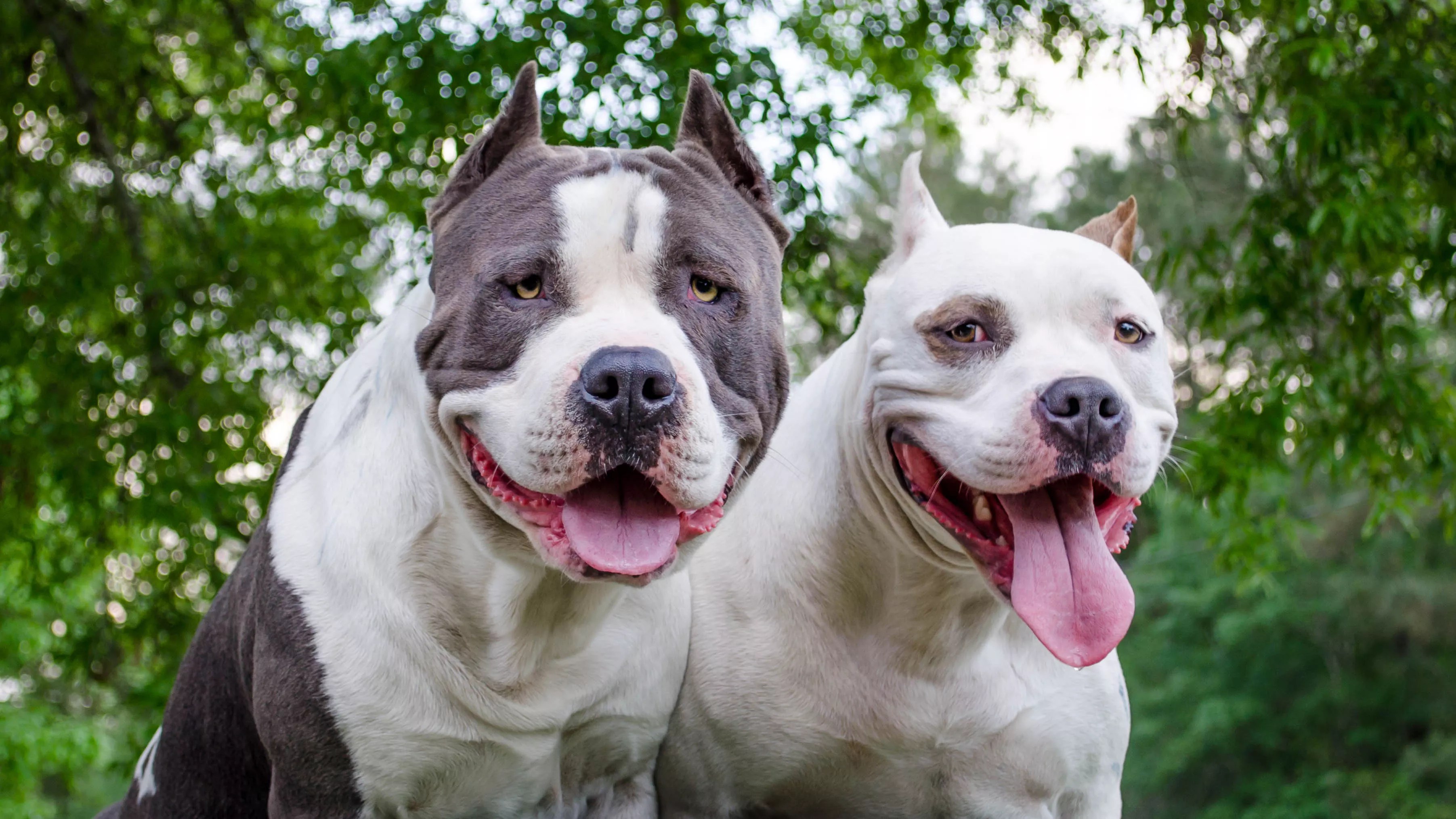
Photo by Cuppyuppycake/Getty Images

Audio By Carbonatix
It’s the first time since the 1980s that Miami-Dade County residents can legally own pit bulls, thanks to a recently enacted Florida law.
The new state law officially lifts Miami-Dade’s longstanding pit bull ban, adopted in 1989 after a pit bull attacked a 7-year-old girl. Under the county’s now-nixed ordinance, people who tried to keep their pit bulls inside county lines had to pay a $500 fine for each dog, and the county could seize the animals.
Though it’s not uncommon to spot pit-bull-type dogs in the county, Miami-Dade Animal Services tells New Times the agency was vigilant in enforcing the rule.
“Whenever the enforcement team encountered a dog that fit the characteristics and was in violation of the ban, they typically acted by citing the owner,” a spokesperson from Animal Services says. “In many cases, they provided the owner with a reasonable amount of time to remove the pit bull from the county voluntarily.”
In 1990, the Florida Legislature passed a bill prohibiting local governments from banning dogs based on breed, weight, or size. But it allowed existing local pet regulations to remain in place, so Miami-Dade’s pit bull ban was grandfathered in and kept on the books.
The new law, entitled “Authorization of Restrictions Concerning Dogs,” eliminated that exemption and voided remaining local pit bull bans across the state as of October 1.
The Humane Society of the United States has long advocated against breed-specific policies. The organization argues these restrictions force dogs out of their homes and into limited shelter space while wasting animal service agencies’ much-needed resources.
“Many animal shelters are flooded with dogs, who, because of breed bans, can’t be adopted to the people in their communities,” the Humane Society says on its website. “Shelters in neighboring cities and counties often end up taking in the dogs.”
A shelter overcrowding crisis is occurring throughout South Florida, pressuring some counties to euthanize more animals and risk losing their no-kill status owing to a lack of space.
Miami-Dade Animal Services told New Times last month that the overpopulation problem has forced the agency to house 140 dogs at its former headquarters in Medley, which lacks air conditioning and the glamorous amenities at the new Doral headquarters. While animal rights advocates have claimed that the facility is in a dilapidated state and the dogs are being neglected, the county says the animals are well cared for and that the Medley site provides a critical safety net for the canine overflow population.
In 2009, New Times chronicled how some pit bull owners left Miami-Dade to avoid citations under the ban, while others stayed put and hoped to avoid scrutiny from the county. One Kendall man told New Times he was keeping his pit bull in a dark bedroom every day while he worked.
“I have to hide him like he’s an abomination or something,” he said. “When I walk him, people put their cars in reverse and stare like I’m holding a fucking Bengal tiger.”
Miami-Dade’s now-axed pit bull ban included American pit bull terriers, Staffordshire bull terriers, American Staffordshire terriers, and similar breeds. The county enacted the ban in 1989 after 7-year-old Melissa Moreira and her mother were attacked by a pit bull that year while walking home from a shopping trip. Though Moreira survived the attack, she went through more than eight facial reconstructive surgeries in the aftermath.
The newly enacted law still permits local governments and public housing authorities to adopt restrictions on owners of dogs that have bitten or attacked people.
Several studies have found that severe dog bites are most commonly from pit bull-type breeds, mixed breeds, and German shepherds. Researchers have pointed out that pit bulls’ bites are reported at a high rate because the dogs’ jaw strength tends to generate injuries more severe than bites from other dog breeds.
A 2022 study found, however, that breed is a poor predictor of individual behavioral traits, “explaining just 9 percent of variation in behavior.” The research was based on a survey of thousands of dog owners, combined with DNA sequencing to broadly map out canine behavioral tendencies.
The American Society for the Prevention of Cruelty to Animals (ASPCA) notes that although pit bulls’ genetic origins can be traced back to a line of bull-baiting and fighting dogs, modern pit bulls are largely the “result of random breeding,” and individual pit bulls have a wide range of behavioral predispositions.
“Early positive experiences, most notably socialization, are considered key in preventing aggressive tendencies in dogs,” the group says.
“Because of the impact of experience, the pit bull specifically bred for generations to be aggressive may not fight with dogs and the Labrador retriever bred to be a service dog may be aggressive toward people,” the ASPCA notes.